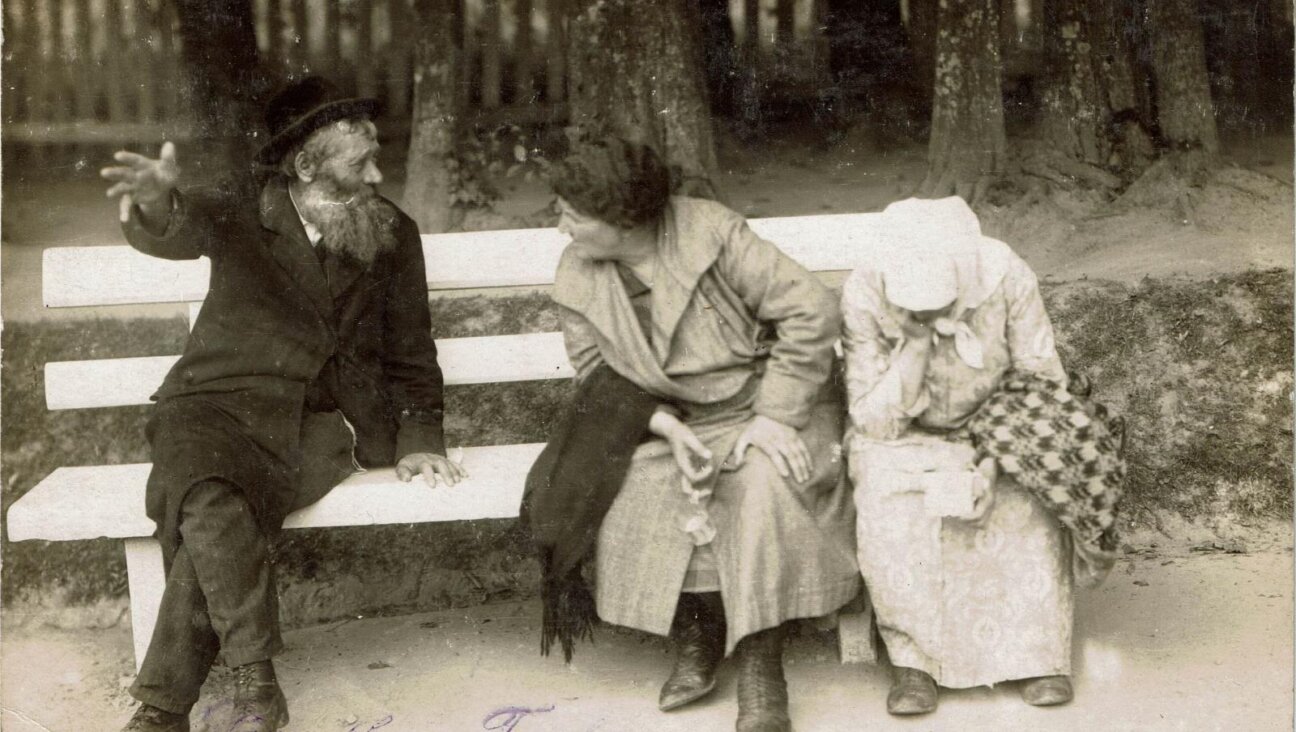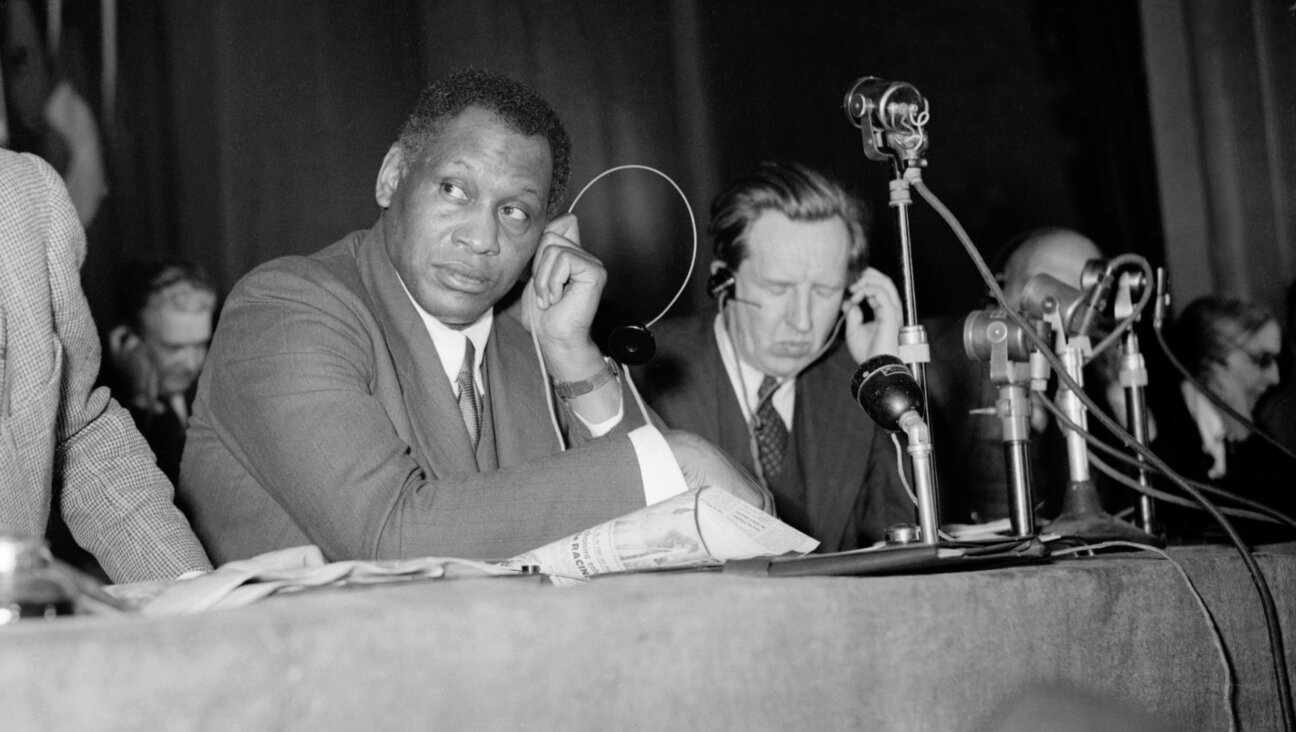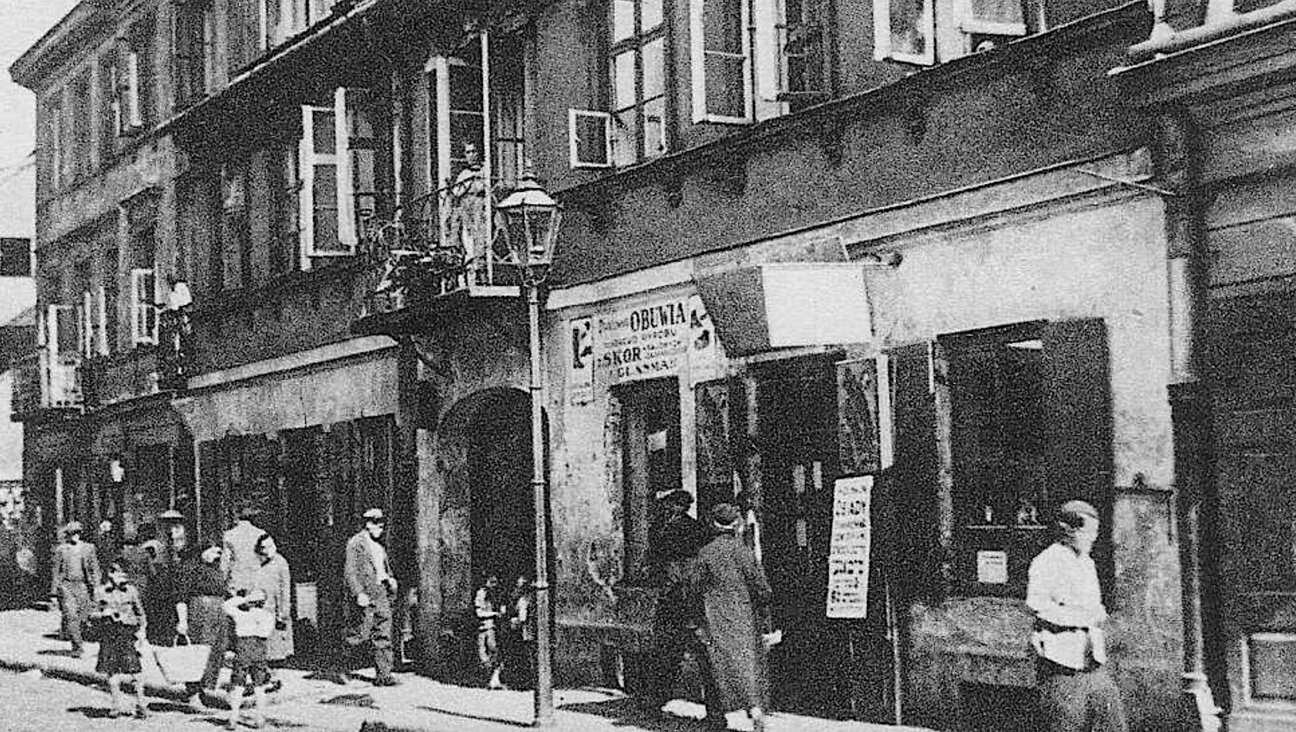Yiddish translation of iconic Russian song plays on national Russian TV

Image by Yoel Matveyev
Yoel Matveyev, the Forverts’ correspondent in Russia, was sitting alone in a Moscow train station in the middle of the night, when he suddenly got the inspiration to translate the Russian song, “Nadezhda”, about two lovers separated by a long and difficult journey, into Yiddish. Although the song was written in 1971, it remains hugely popular in Russia.
Matveyev never imagined that just a year later, his translation would be performed on national Russian television by a choir from Birobidzhan, a city near the Russian-Chinese border, that has a Soviet-Yiddish heritage.
Still heard on the radio fifty years later, Matveyev says “Nadezhda” (which means hope in Russian) was “a staple of my childhood in Russia, where it was often played at birthday parties and other family celebrations, usually accompanied by guitar.”
Written by a star couple in the Soviet music world, Aleksandra Pakhmutova and Nikolai Dobronravov, now both in their 90’s, the song’s 50th anniversary is being feted this month in concerts throughout Russia in a variety of languages.
A Jewish-themed choir in Birobidzhan, called Ilanot, adapted Matveyev’s translation for this celebration, with the first two stanzas in Yiddish and the second two in Russian. Birobidzhan, the capital of the Russian district of the Jewish Autonomous Oblast, is a small city in the Far East of Russia where the Soviets made Yiddish an official language alongside Russian.
Though there are relatively few Jews there now, and less than a hundred Yiddish speakers, Birobidzhan is proud of its heritage. Ilanot, named after a Hebrew word for trees, was founded in 1999 and largely made up of non-Jews. They have sung more and more in Yiddish over the years, as an homage to their city.
A message from our Publisher & CEO Rachel Fishman Feddersen

I hope you appreciated this article. Before you go, I’d like to ask you to please support the Forward’s award-winning, nonprofit journalism during this critical time.
At a time when other newsrooms are closing or cutting back, the Forward has removed its paywall and invested additional resources to report on the ground from Israel and around the U.S. on the impact of the war, rising antisemitism and polarized discourse.
Readers like you make it all possible. Support our work by becoming a Forward Member and connect with our journalism and your community.
— Rachel Fishman Feddersen, Publisher and CEO
























